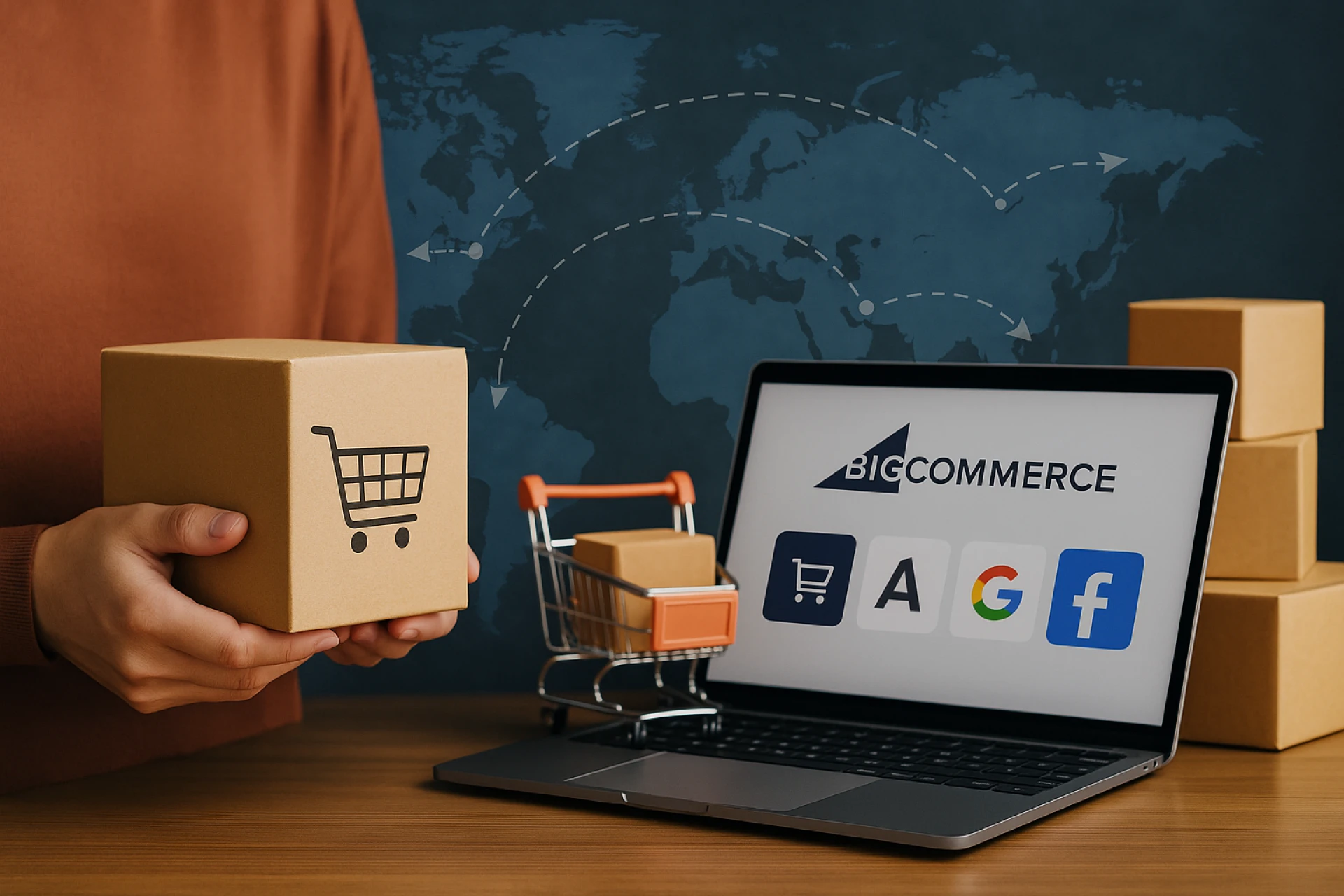When it comes to eCommerce platforms, most people think of Shopify, Magento, or WooCommerce as the default choices. But here’s something you might not know—many top brands are quietly moving over to BigCommerce, and it’s not because of price.
BigCommerce has been making serious waves in the eCommerce world. Today, it powers over 60,000 merchants globally, and what’s even more impressive is its 38% year-over-year growth in enterprise adoption. That means more mid-sized and large businesses are trusting BigCommerce to run their online stores. And no, this isn’t just a cost-saving move—it’s about performance, scalability, and results.
Let’s break down why BigCommerce is becoming the go-to platform for serious brands.
1. It’s Built for Growth, Not Just for Startups
Many eCommerce platforms are great when you’re just starting out. But as soon as your store grows, you run into limitations—whether it’s transaction fees, slow checkout, or endless dependency on third-party apps.
BigCommerce stands out here. It was designed with scalability in mind, meaning a business can start small and grow big without hitting constant roadblocks. This is one of the main reasons enterprise-level brands are switching. They don’t want to keep “rebuilding” their store every time they outgrow a platform.
2. Higher Average Order Value (AOV)

Here’s a number that should make you sit up: BigCommerce merchants see an average order value (AOV) of $137. That’s higher than what many competitors report.
Why does this matter? Because AOV is one of the most important growth levers in eCommerce. If shoppers are spending more per order, it directly translates into higher profits. BigCommerce helps achieve this with features like advanced product filtering, customer group pricing, and built-in upsell and cross-sell options.
Brands care less about paying a few dollars more for a platform if it means making more per transaction.
Read More: BigCommerce VS Shopify
3. Fewer Hidden Costs Compared to Competitors
Now, let’s clear this up—BigCommerce is not always the cheapest option. But the reason brands love it is that it saves them from the “nickel and diming” problem.
Take Shopify for example: you often need tons of third-party apps to unlock key features like advanced SEO, product filters, or multi-currency support. Each app adds extra cost and slows down your store.
BigCommerce, on the other hand, bakes many of these features directly into the platform. That means fewer apps, fewer integrations breaking, and less money wasted on add-ons. For brands scaling fast, this simplicity is worth more than shaving a few bucks off the monthly fee.
4. Seamless ERP and System Integrations

If you’re running a mid-to-large sized business, you’re probably using ERP systems, CRMs, or other business software to keep everything in sync. This is where BigCommerce shines.
It integrates smoothly with popular systems like Oracle NetSuite, Microsoft Dynamics, and Salesforce. For growing businesses, this is a game-changer. Imagine not having to manually update stock levels or customer data—BigCommerce makes that possible with real-time syncing.
This is also why BigCommerce Development Services are in high demand. Agencies and developers are helping brands build tailored integrations that connect BigCommerce to their unique business workflows.
5. Flexibility Without Complexity
One of the biggest challenges in eCommerce is balancing flexibility with usability. On one side, you want a platform that’s customizable. On the other, you don’t want a system so complicated that you need an entire IT department to manage it.
BigCommerce hits the sweet spot. It gives developers the freedom to create custom experiences while keeping the backend simple enough for non-technical users. Whether it’s managing promotions, adjusting shipping rules, or launching a new product category, teams can handle it without calling a developer every time.
6. International and Multi-Channel Selling

Top brands don’t just sell in one market or one channel anymore. They sell across multiple countries, currencies, and platforms like Amazon, eBay, Walmart, and social media.
BigCommerce supports this kind of selling right out of the box. Multi-currency and multi-language support is built-in, and brands can manage different storefronts from a single dashboard. Plus, it connects easily with major marketplaces, so businesses can sell wherever their customers are.
For a brand eyeing global expansion, this is priceless.
7. Real-Time Growth: Over 41,000 Active Stores in 2025
The numbers don’t lie. As of 2025, there are over 41,000 active BigCommerce stores worldwide, and the number is growing fast. BigCommerce has moved beyond being “just another option” to being a mainstream platform trusted by thousands of serious sellers.
And when you look closer, you’ll notice it’s not just small players—enterprise adoption is what’s fueling this rapid growth.
8. Community and Partner Ecosystem

Behind every great platform is a strong ecosystem. BigCommerce has built a thriving community of developers, agencies, and tech partners. This makes it easier for brands to find BigCommerce Development Services tailored to their needs.
Whether you need a custom theme, a new ERP integration, or help optimizing your store for conversions, there are certified BigCommerce experts who can get it done. This level of support and expertise makes brands feel confident when making the switch.
Final Thoughts
So why are top brands secretly migrating to BigCommerce? It’s not about saving a few dollars on subscription costs. It’s about getting a platform that grows with them, supports higher order values, integrates seamlessly with their existing systems, and makes global selling easier.
In eCommerce, the cheapest option isn’t always the smartest. What matters is stability, scalability, and profitability. And right now, BigCommerce is checking all the boxes.
If you’re planning to scale your online store, it might be worth looking into BigCommerce Development Services—because chances are, the brands you admire are already making the move.


